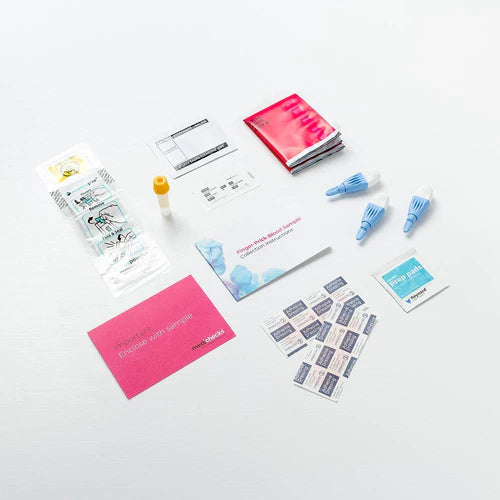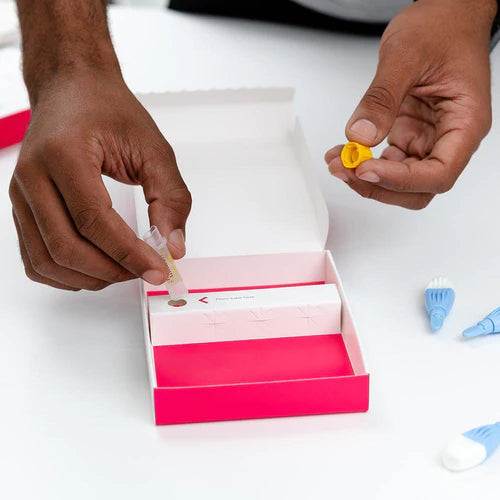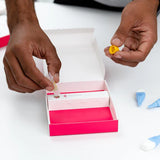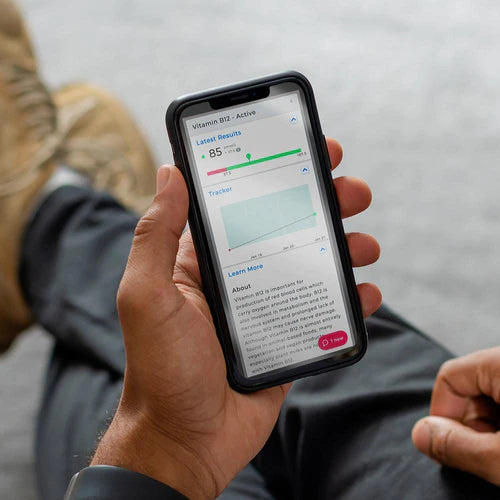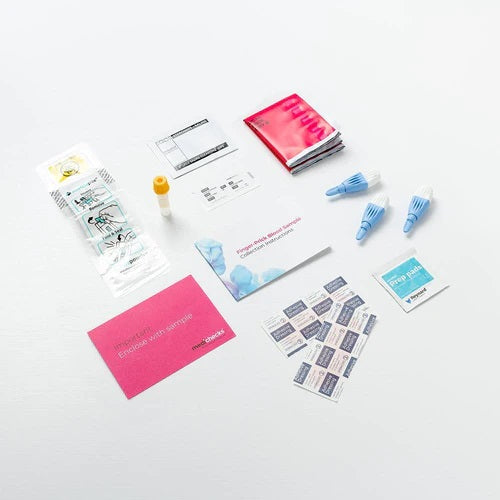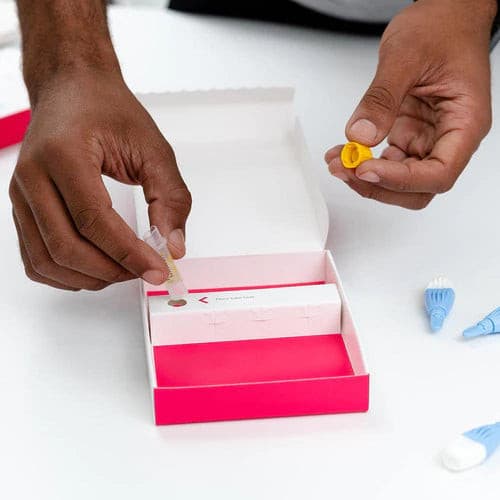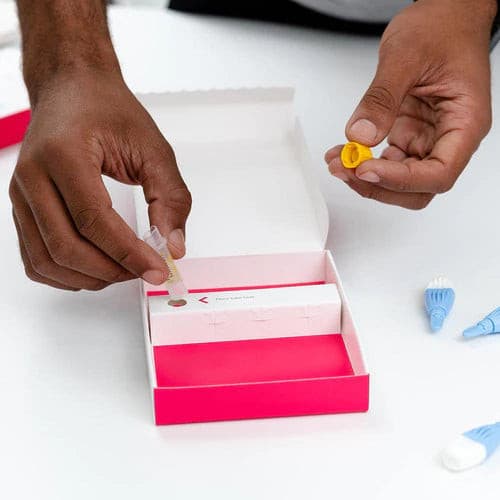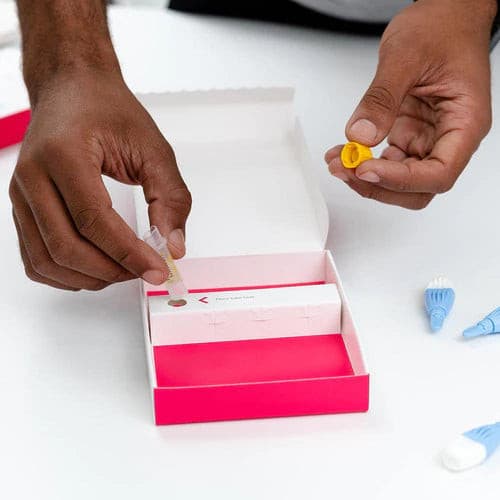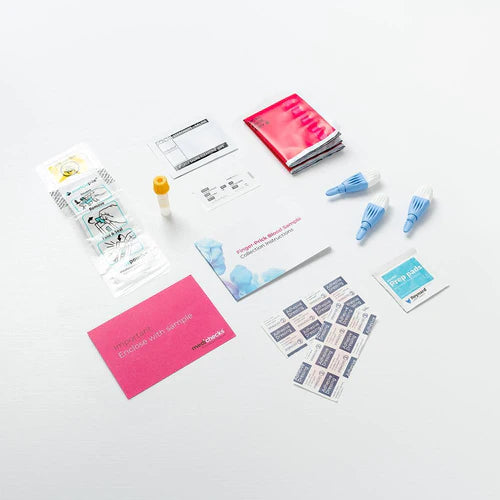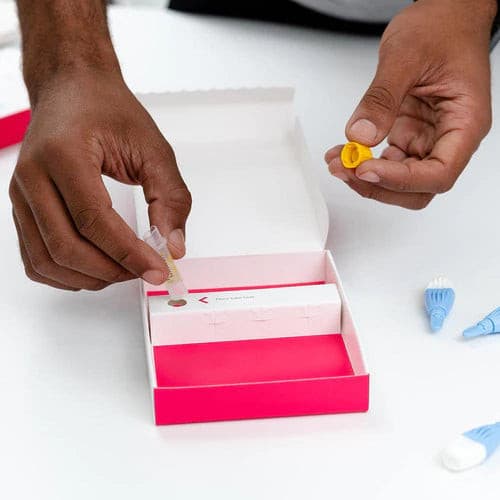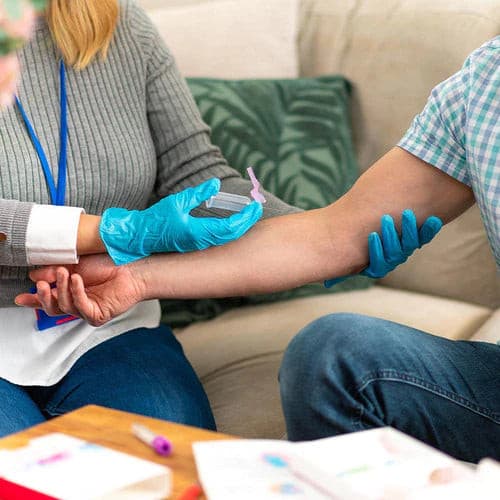
About Description
- test for viruses before starting fertility treatment
- HIV, hepatitis B, hepatitis C and syphilis
Why People Choose Us

Quick & Easy
No appointment or long waiting times

Discreet Packaging
Plain packaging with no medical stamps or marks

Confidential Service
Your information stays with us and private payment

UK Medication
Dispensed by registered UK pharmacists
The immune system produces anti-HIV antibodies in response to either type 1 or type 2 HIV infection.
P24 antigen, a protein from the HIV virus's core, is present during initial HIV infection but vanishes after seroconversion.
The results of this test will indicate whether or not HIV antibodies and p24 antigen were found in the blood.
This examination evaluates the level of hepatitis B antibody in your blood. If you have hepatitis B immunity or not will be revealed by this test.
A result of more than 10 IU/L indicates that you have enough antibodies to provide immunisation in the majority of the population.
If the result is less than 10 IU/L, you are not immune. A result higher than 100 IU/L is required if you are exposed to hepatitis B risk factors at work (Exposure Prone Procedures - EPP) in order to confirm immunity.
If your test results indicate that you are immune to hepatitis B, it means that you are not only protected against infection but also that you won't transmit the disease to others.Hepatitis B immunity can be obtained from past vaccinations or by having recovered from an earlier infection.
This test won't reveal whether you have hepatitis B at the moment. The contagious viral disease hepatitis B makes your liver swell and become inflamed. An acute hepatitis B infection typically resolves on its own in 6 months or less.
Others, however, experience a persistent (prolonged) infection that can result in irreversible liver damage.There may not be many signs of hepatitis B, especially in the beginning.
Those who have had frequent interaction with infected individuals are at risk of contracting hepatitis B. (including unprotected sexual contact). You run the risk of contracting hepatitis B if you come into contact with infected blood (for example, through sharing needles or participating in some contact sports). For work-related reasons, healthcare workers are frequently required to assess their immunity to hep B.
This test determines whether you have ever had hepatitis C by checking the level of anti-hepatitis C antibodies in your blood. Various laboratories will present results in various ways.
Antibodies that are labeled as "detected," "positive," or "reactive" indicate that you have contracted hepatitis C.
A test for a current infection must be performed after a positive result because this test cannot determine whether your illness is currently present. Your test results will be "not identified," "negative," or "non-reactive" if you have not contracted hepatitis C.There may not have been enough time for antibodies to develop if you did not give yourself enough time between your potential exposure to hepatitis C and your test.
This denotes a possibility that your test could result in a "false negative." It is advised to undergo the test again after 6 months if you think you may be at risk of contracting hepatitis C. A viral infection called hepatitis C can inflame the liver and leave it scarred.
It can damage the liver permanently if untreated for a long period of time.Most persons who are treated for hepatitis C recover successfully from the infection; 20% of infected people are able to clear the virus on their own.
Hepatitis C is typically spread by contact with blood. Hepatitis C infections are most frequently caused by sharing needles, but they can also be passed from a woman to her unborn child and (less frequently) during unprotected sex.
It may be necessary to test for hepatitis C for healthcare workers or those who may come into contact with blood from others while performing their duties. Hepatitis C cannot be prevented by a vaccination.
Treponema pallidum, which causes syphilis, is a bacteria that is spread through sexual contact. This is crucial to test for and treat since, if left untreated, the infection can result in a number of health issues.
When there is an infection in the body, the immune system produces antibodies. Antibodies specific to syphilis can be checked for in the body to assist detect an infection.
When the hepatitis B virus is infected, the hepatitis B surface antigen (HBsAg), a protein on the surface of the virus, is present in the blood.
This surface antigen can be used to distinguish between acute and persistent HBV infections.
Positive surface antigen indicates the presence of the virus and that the person is contagious.
Easy Steps for your Medicine

Complete a consultation.
With complete privacy and confidentiality your form is checked by a pharmacist independent prescriber.
Choose your treatment.
From the list approved by the prescriber, choose your preferred treatment and then wait for it to be dispensed by UK Meds online pharmacy.
Receive your delivery
With next day delivery options available, you can have your treatment sent out to you discreetly within hours.Our Happy Customers
Rated Us for our Service Excellence
 Dispensed by Regulated UK Pharmacists
Dispensed by Regulated UK Pharmacists

 How it works
How it works Help
Help Account
Account
 Basket
Basket






